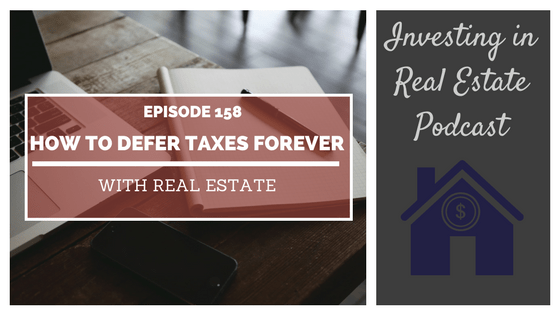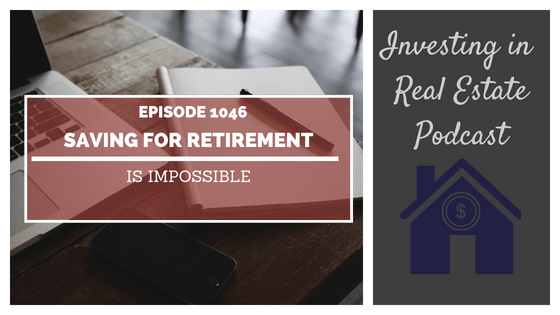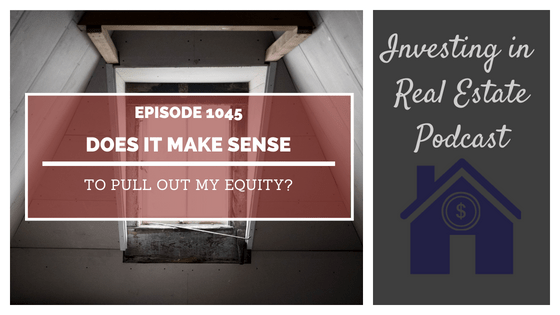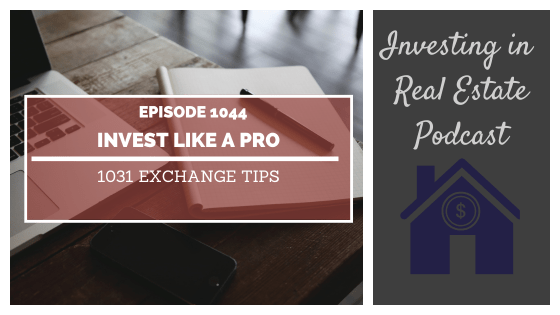
What makes a solid rental market? This is one of the most important pieces you need to have in place before you invest in real estate. There are a lot of criteria that can go into choosing a city to invest in.
On today’s show, I’m going to share ten major factors to consider when you’re looking at a rental market, the biggest mistakes I see investors make when choosing a place to invest, and more. Get ready to take notes, because you’re going to learn my best tips for identifying a sustainable and profitable rental market!
More About This Show
Here are the top metrics you should be looking for in a rental market:
- Vacancy rates. As a real estate investor, vacancies have the potential to be your biggest cost. While vacancies are an inevitable part of being a landlord, you want to mitigate them as much as you possibly can. The last thing you want is for your rental property to be sitting vacant for months on end, cutting into your bottom line. That’s why it’s critical that you get a clear understanding of what the vacancy rate is in a market. There’s not an exact science to pinning down a good vacancy rate, because it can vary greatly by city. In the description below, I’m going to link to the US Census Bureau’s report on housing vacancies. This data is updated quarterly, so you can get a good idea of what an average vacancy rate is and compare it to the market you’re studying. I would also suggest touching base with a local property management team to see if they can give you a rundown on what’s happening in that specific market.
- Appreciation. One of the best parts about investing in real estate is that your assets naturally grow in value over time. The longer you hold your investments, the more they’re worth, giving you a higher net worth and more equity to leverage. However, when you’re looking at a rental market, you want to avoid cities that have off-the-charts rates of appreciation. Instead, you want to see average and consistent appreciation to the tune of 2 or 3%, conservatively.
- Market cycle. I always like to say, there’s no such thing as one housing market. When you do your market research, you’re going to have to study the full picture of what’s happening in the market now, as well as in a historical context. This includes looking at housing prices, mortgage rates, and the demand for rentals. Consider whether it’s a buyer’s or seller’s market in order to gauge demand and competition. Every city has its own trends, so you’ll want to make sure you’re investing in this market at an opportune time.
- Job growth. This metric is an excellent indicator of population and economic health in a city. This is because when employment levels are on the rise, you’re going to see a higher demand for housing. You can analyze regional markets through the Bureau of Labor Statistics to get an understanding of job types and wages in your prospective market.
- Job diversity. Staying in the realm of labor, you also want to see a wide variety of employers in your market. If you’re looking into a city and you notice there are only a few employers, that’s a huge red flag. When it comes to job diversity, you want to see multiple American-based businesses including hospitals and other healthcare companies, warehouses and factories, as well as schools and universities. When a market has high job diversity, it has lower unemployment rates, and a higher availability of long-term tenants.
- Crime rates. This is a metric you don’t want to overlook. I want you to pretend that you’re a tenant in this scenario. Would you feel comfortable renting a home in an area where there are high rates of theft and violence? Surely not. Crime data can vary vastly from neighborhood to neighborhood, so be sure to dive into the city’s local crime data to ensure you’re providing a safe home for your tenants. Additionally, a local property management company can give you a good idea what to expect in terms of crime. While numbers and statistics are a useful tool, a property management company will have the firsthand experience to help you determine if you’re investing in the right area.
- School ratings. Again, take a second and imagine you’re the tenant. What types of schools would you feel comfortable sending your children to? What kinds of ratings would you like to see? A great local public school system can encourage a tenant to stay in a property long-term, and it’s also a surefire sign of a thriving city.
- Legal environment. Legal issues have the potential to be the biggest headache of your life, so do your best to invest in states and cities with landlord friendly legislation. Get a solid understanding of the eviction process, rental licenses, security deposits, and tenant damages. You want to invest where you’ll be treated fairly, so be sure to do your due diligence and research these rules and regulations before you invest.
- Property management. Does this market have multiple property management companies that are reputable? I would advise you to invest in cities that allow you to have options. I have an entire video on what to look for in a property management company, so be sure to check out that video, and make sure that your desired rental market has multiple property management teams that you can trust. This gives you options and shows you that you’re investing in a desirable rental market.
- Local economy. This one is a bit broader, but it’s important that you dig into what’s happening in the local economy. You want to see access to public transportation, multiple amenities, attractions, and parks, as well as multiple options for shopping and dining. If the local economy is thriving, that’s a sign of a great rental market where people like to live.
Market research can be a lengthy and exhaustive process, but it’s indispensable to your success as a real estate investor. The mantra “location, location, location” exists for a reason. Taking into account the ten factors in this video will give you a great start on finding an in-demand, profitable rental market.
And if you want to reap the benefits of buying rental real estate without doing market research on your own, at Morris Invest we’ve done all of the groundwork for you. Our acquisitions team spends years analyzing market data, taking into account everything we talked about today—and more. Our full-service approach is designed to take the hassle out of investing, including the science of market research. If you’re interested in learning more, you can schedule a free call at morrisinvest.com
Episode Resources
Book a Call with Our Team
US Census Bureau’s report on housing vacancies
morrisinvest.com/bootcamp ← Download your FREE 90-Day Bootcamp!
Subscribe to Investing in Real Estate on Apple Podcasts
Find Your Financial Freedom Number
Subscribe to the Morris Invest YouTube channel
Like Morris Invest on Facebook
DISCLAIMER: I am not a financial adviser. I only express my opinion based on my experience. Your experience may be different. These videos are for educational and inspirational purposes only. Investing of any kind involves risk. While it is possible to minimize risk, your investments are solely your responsibility. It is imperative that you conduct your own research. There is no guarantee of gains or losses on investments.
AFFILIATE DISCLOSURE: Some of the links on this channel are affiliate links, meaning, at NO additional cost to you, I may earn a commission if you click through and make a purchase and/or subscribe. However, this does not impact my opinion. We recommend them because they are helpful and useful, not because of the small commissions we make if you decide to use their services. Please do not spend any money on these products unless you feel you need them or that they will help you achieve your goals.
Ready To Build Passive Income Through Rental Real Estate?
Ready to talk about your goals? We're here to show you the tools and teach you the process to begin earning legacy wealth for you and your family.








